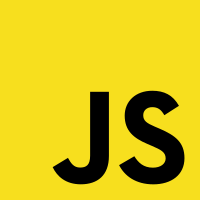JavaScript gives you two main ways to define functions: Function Declaration and Function Expression. Think of them like ordering coffee —one is like brewing it at home (declaration), and the other is like grabbing one from a café (expression). Both get the job done, but they have some key differences!
1. Function Declaration
A function declaration is a traditional way of defining a function. It’s straightforward and gets hoisted, meaning JavaScript knows about it before executing the code.
Example:
function sayHello() {
console.log("Hello, world!");
}
sayHello();
Output:
Hello, world! Real-life analogy: Like writing down a to-do list in the morning. You plan ahead, and when the time comes, you execute it.
2. Function Expression
A function expression involves assigning a function to a variable. Unlike declarations, function expressions are not hoisted, meaning you can’t use them before they are defined.
Example:
const sayHello = function() {
console.log("Hello, world!");
};
sayHello();
Output:
Hello, world! Real-life analogy: Like deciding to grab coffee when you’re already outside. You don’t plan ahead—you just do it when needed.
3. Hoisting: The Big Difference
| Feature | Function Declaration | Function Expression |
|---|---|---|
| Hoisting | Yes | No |
| Can be used before definition? | Yes | No |
| Stored in a variable? | No | Yes |
Example:
sayHello(); // Works fine
function sayHello() {
console.log("Hello, hoisting!");
}
Output:
Hello, hoisting!But with function expressions:
sayHello(); // ERROR! Cannot access before initialization
const sayHello = function() {
console.log("Hello!");
};
4. Anonymous vs Named Function Expressions
Function expressions can be anonymous (without a name) or named (with a name).
Example:
const anonymousFunc = function() {
console.log("I have no name!");
};
const namedFunc = function hello() {
console.log("I have a name!");
};
Real-life analogy: Anonymous functions are like mystery calls, while named functions are like saved contacts.
5. When to Use What?
- Use function declarations when you need to call a function anywhere in your code (e.g., utility functions).
- Use function expressions when defining functions dynamically (e.g., inside event listeners or callbacks).
Conclusion
Both function declarations and expressions are powerful, but understanding their differences helps you write better JavaScript!


0 Comments:
Posting Komentar